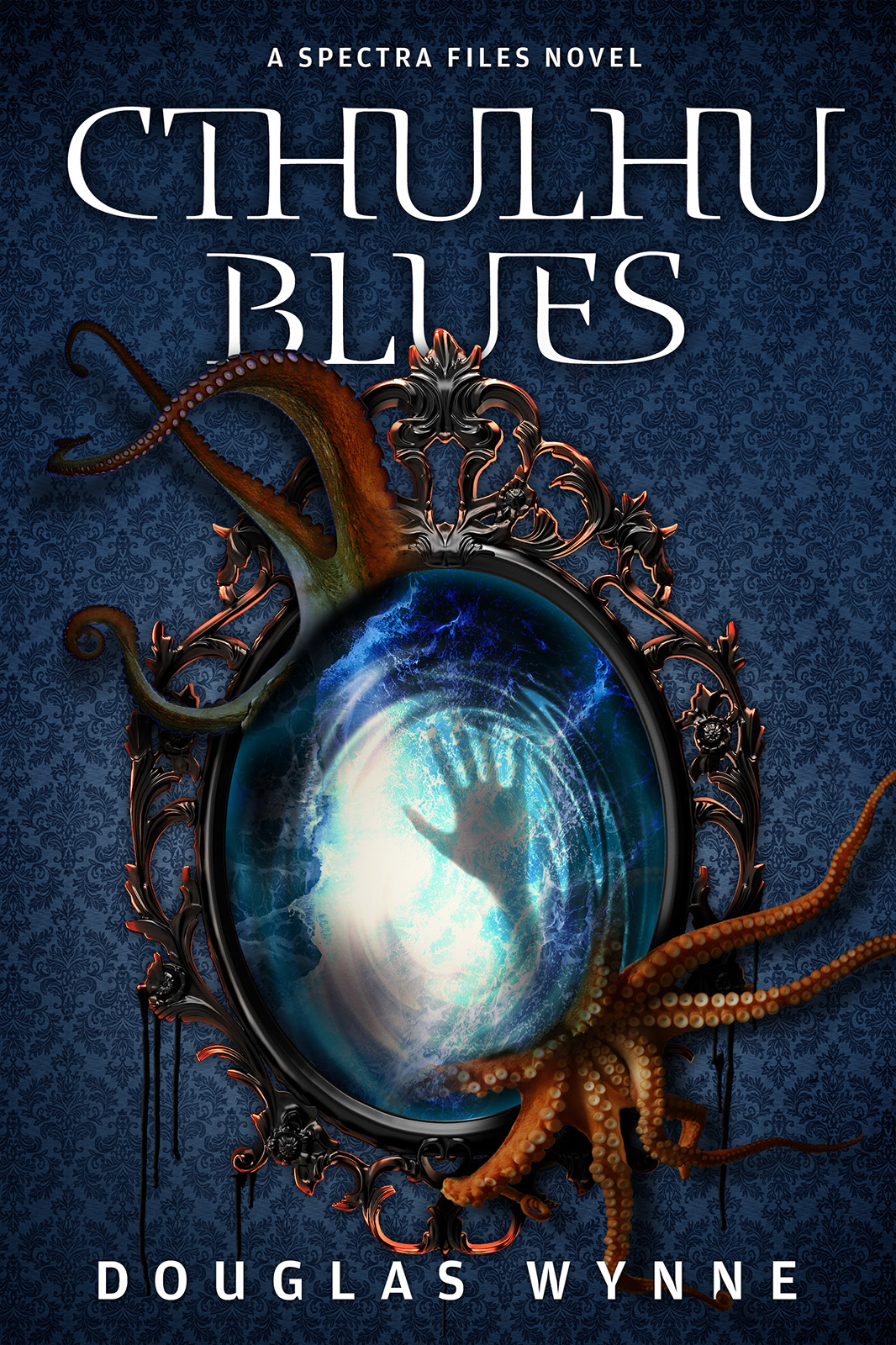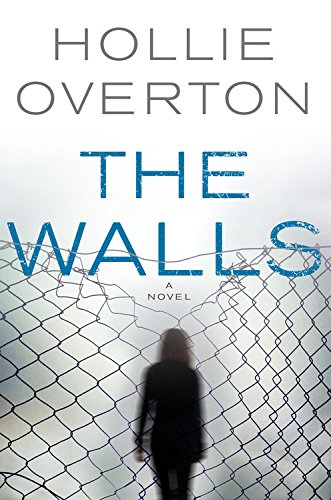This week on The Scariest Part, my guest is author Douglas Wynne, whose new novel is Cthulhu Blues, the third volume of the SPECTRA Files trilogy. Here is the publisher’s description:
The Wade House has been reduced to ash, but the dreams that plagued Becca Philips and Jason Brooks when they slept in that abomination continue to haunt them. After years of facing trans-dimensional monsters in the service of SPECTRA, a few lingering nightmares are to be expected. But when Becca starts singing in her sleep — an ancient song that conjures dreadful things from mirrored surfaces — she fears that the harmonics she was exposed to during the Red Equinox terror event may have mutated not only her perception, but also her voice. It’s a gift — or curse — that she shares with a select group of children born to other witnesses of the incursion.
While a shadowy figure known as the “Crimson Minstrel” gathers these children to form an infernal choir, something ancient stirs on the ocean floor. And Becca, hearing its call, once again finds herself running from an agency she can no longer trust into the embrace of cosmic forces she can barely comprehend.
And now, let’s hear what the scariest part was for Douglas Wynne:
Unless there’s a large measure of luck involved, my son usually kicks my ass at board games. My wife recently had a good laugh when, following one of these whuppins, I exclaimed, “Daddy’s not a strategist! That’s why he doesn’t outline his books!”
When I wrote my first Lovecraftian thriller, Red Equinox, I knew the ending set the stage for a potential sequel, but as someone who doesn’t plan ahead much, I’m tempted to say that the scariest part was committing to writing a series without knowing how it would end. After all, when I’m working on a single novel, I get to go back and make changes to the early chapters in light of what I’ve learned along the way. Improvising the first draft frees me up to follow whatever path feels right for the characters, knowing that rewrites will give me the opportunity to fine tune and correct for continuity.
There are no rewrites for published books.
So it was a leap of faith for me to put plot lines out there that suggested certain story possibilities but for which I couldn’t predict the trajectory.
The biggest cliffhanger that I left dangling at the end of Red Equinox had to do with a generation of children born to witnesses of a cosmic terrorism event in Boston in 2019. In that first book Darius Marlowe — an MIT student and radicalized young member of the Starry Wisdom Church — takes the apocalyptic prophecies of his religion to heart and creates a device he calls the Voicebox of the Gods. The infernal machine is inspired by Darius’ occult communion with Nyarlathotep (H.P. Lovecraft’s dark analog of the Egyptian god Thoth) and is a hybrid 3D printed/lab grown larynx capable of producing harmonics that humans lost the ability to chant aeons ago. Darius mounts the larynx in a boom box and sets it off on a subway train in Cambridge, unleashing cosmic mayhem on the passengers. This union of ancient incantations with cutting edge tech alters the perception of the bystanders, allowing them to see and be seen by monstrous gods from another dimension. As you can imagine, all hell breaks loose.
By the end of the novel, all of the witnesses — with the exceptions of main characters Becca Philips and Agent Jason Brooks — have taken a drug called Nepenthe to shut their extra perception down. In the second book, Black January, children born of parents exposed to the harmonics exhibit the ability to perceive trans-dimensional entities and eventually develop biological mutations that enable them to sing mantras endowed with the power to align our world with that of the Great Old Ones.
In Cthulhu Blues, the third and final book of the SPECTRA Files Trilogy, another avatar of Nyarlathotep known as the Crimson Minstrel arises. Wandering between worlds, this shadowy figure appears to the gifted children in mirrored surfaces and lures them into a twilight realm via seductive music that resonates with the ancient power they have inherited.
Becca, our heroine, has no children of her own but becomes invested in finding and saving the child of a friend and even protecting the child of a family of cultists who may want to contribute to the apocalyptic return of their slumbering gods. Unfortunately, having refused the drug that would have shut her abilities down, Becca also has to contend with the mutation of her own voice and the possibility that she is herself becoming something monstrous, or something to be used in the service of monsters.
As a parent, I worry about all kinds of influences on my child. Everything, from the ingredients in his food to the contents of a phone in the hands of another kid on the school bus, presents potentially dangerous variables; more of them beyond my control with each passing year. I try to keep these in perspective. But I’m also aware that some otherwise rational members of my generation have succumbed to paranoia about vaccines, putting all of us at risk due to the fear that a trace of mercury (another name for the messenger of the gods) might alter their child’s brain.
It’s a powerful fear — the prospect that a child who depends on you for their wellbeing, your precious responsibility to whom you devote so much care and caution, so much nurturing and bonding, could change into something you can’t relate to in the same way.
Of course, that’s also what awaits us to some degree as our children grow up. And some of the best parents I count among my friends have navigated Aspergers and Autism with more grace and resourcefulness than most of us bring to lesser challenges. In other cases, we worry that our children will inherit the same mental and physical ailments that plague us, or our parents.
The mutations I put the children through in Cthulhu Blues are far more chilling than the ones most of us worry about in the real world. In the end, the trilogy without an outline worked out as if I had planned it (and I believe there’s always more intelligent design going on at the subconscious level than the writer is aware of). But imagining a red-robed minstrel with blue fire flickering in his hair, plucking a guitar and leading glassy-eyed children across a twilight shore to sing hymns to a cold blooded leviathan beneath alien stars…
For me, that was the scariest part.
Cthulhu Blues: Amazon / Barnes & Noble / IndieBound
Douglas Wynne: Website / Facebook / Twitter
Douglas Wynne wrote his first dark fantasy novel at the age of fifteen but has never found the courage to take it down from the attic and read it. After a long detour through music school, rock bands, and recording studios, he came full circle back to fiction writing and is recently the author of five novels: The Devil of Echo Lake, Steel Breeze, and the SPECTRA Files trilogy (Red Equinox, Black January, and Cthulhu Blues). He lives in Massachusetts with his wife and son and a houseful of animals.





